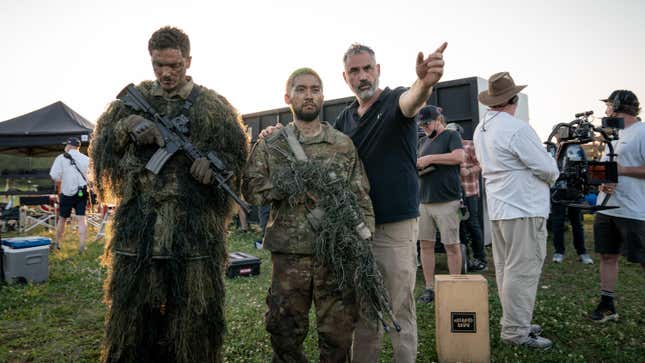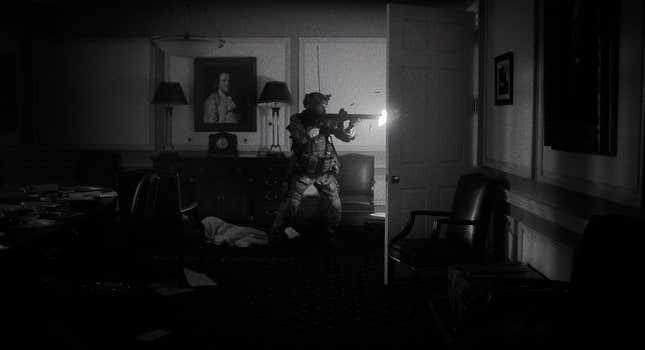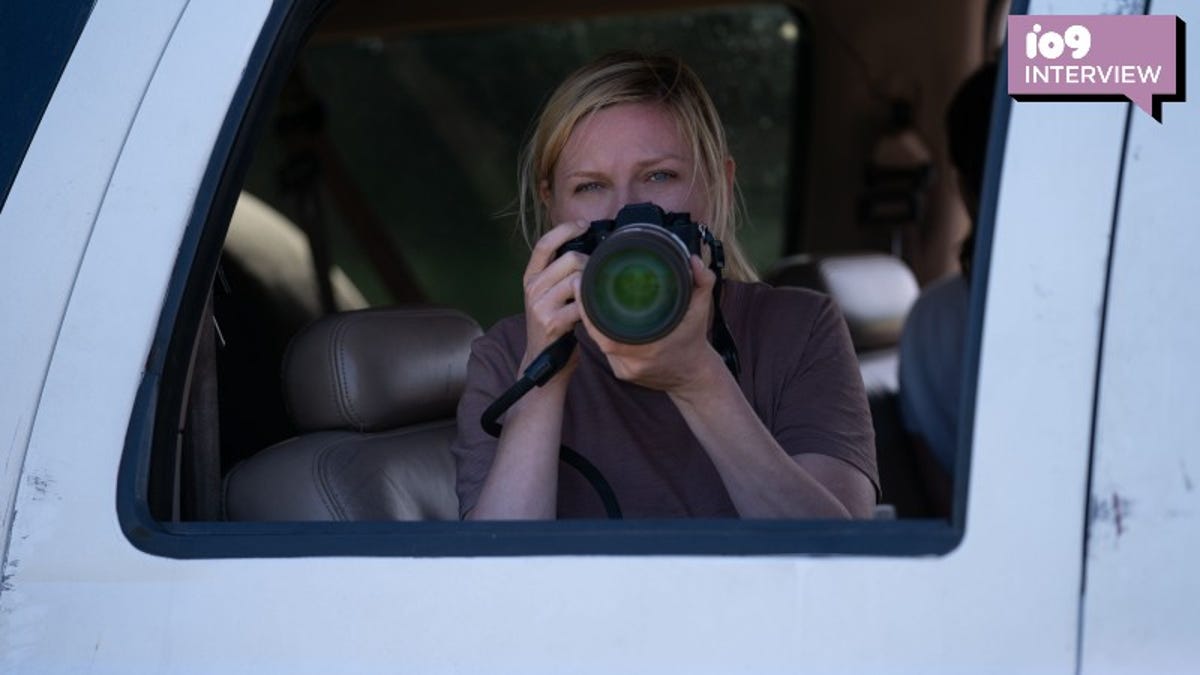If you were to make a list of people you’d expect to make a gritty, grounded, realistic, political thriller-slash-war movie, Alex Garland wouldn’t be on it. From his earliest work writing movies such as 28 Days Later and Sunshine to his directorial efforts such as Ex Machina and Annihilation, Garland has almost exclusively worked in sci-fi. So when his name pops up on a movie like Civil War, a cautionary action film about the political divide in the United States, it’s a bit of a head-scratcher. Garland gets that.
“The reason I love sci-fi is because sci-fi has always permitted big ideas into it. It’s not embarrassed of big ideas,” Garland told io9 on video chat last week. “They exist in Forbidden Planet. They exist in Star Trek. There would be clear discussions or metaphors or literary analogies or whatever it happens to be. It was just allowed. And sci-fi audiences were kind of open-minded. They actually liked that… whereas if you did that in other genres, people would raise an eyebrow, like get a bit arch and a bit skeptical, in a sense… But [Civil War], if this was too sci-fi, it would reduce the texture of reality. And so it just didn’t feel appropriate. If I’d set it on a distant planet, yeah, it would have worked as an analogy, maybe, but it wouldn’t have the strength of the assertion.”
And so the sci-fi guy put that all aside and approached reality in his own, unique way. In Civil War, Garland presents a United States that is no longer united. The country has fractured into several different areas, many of which are now at war with one another. And while there is clearly DNA pulled from the current political climate, the film very specifically veers away from defining anything specifically. No one is right-wing, no one is left-wing, everyone just is, and that objectivity was not only a conscious choice in the writing, it echoes in his lead characters too.

“What I wanted the film to do was to function as a film in the same way as the reporters, which is just to show a sequence of events with a kind of studied neutrality,” he said. “Now, that doesn’t mean that it’s without bias, because a journalist reporting on something might have very strong feelings, and in fact, you could almost guarantee they would. So it’s just to do with how information is presented.”
Garland’s attempts at personifying and paying homage to objective, hard-nosed journalism even carried over to the choice of journalism depicted in the film. Though modern media is ruled by video, the main characters in Civil War are still photographers, a specific nod to the old-school way of doing things Garland wanted to pay tribute to.
“When you make a film, you try and make it work at different levels, and some of them are quite unconscious levels,” he said. “You hope it lands in an unconscious way but, in truth… [having the characters be photo journalists] reminds people of that old-fashioned form of photojournalism. Of that old-fashioned form of reporting when you had—in the 1960s and 1970s or whatever it was—these still photographers winding their camera. So it’s like a kind of trace memory.”

Garland hopes when Civil War comes out, that it’ll be less of a trace memory for people and more of a gut shot. But he’s not exactly sure if that’ll happen. “It’s a dice roll,” he said. “You’re throwing this out into a polarized world where if you are not preaching to the choir that wants to be preached to, then they’ll get pissed off. Because that’s the counter. You want to hear your own biases reflected back at you.”
And from the guy who usually writes about running zombies, spaceships, AI, and alternate dimensions, it’s not doesn’t seem to be a reflection of him at all. Even though it is.
Civil War is in theaters Friday. We’ll have more from Garland later this week.
Want more io9 news? Check out when to expect the latest Marvel, Star Wars, and Star Trek releases, what’s next for the DC Universe on film and TV, and everything you need to know about the future of Doctor Who.

